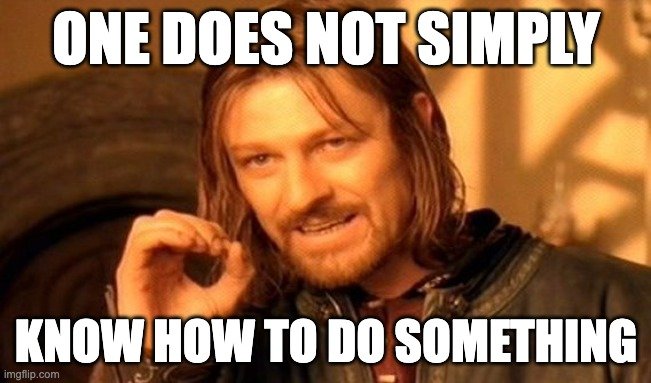Becoming a “jira guy” - or how I started using Jira
One of my favorite sayings is ‘use it up, wear it out, make it do, or do without’ - and it's served me very well with my tools.
Over time I’ve found out different ways to solve challenges with tools like Atlassian’s Jira. but the reason WHY I use Jira, or any tool, really, may surprise you.
I’m frequently known as “a jira guy” (I can’t say “The Jira Guy - that’s already taken!). This name came around since I”m generally the person on my team trying to figure out how to use Jira to solve a problem. Building a new piece of software? Jira can help with that. Have a help desk to manage? Jira does that. Have complex Sarbanes-Oxley (SOX) compliance to track? Jira can do that.
For the Jira example it’s not because I think Jira is the best possible tool, or because I’ve spent years analyzing all the options and picking Jira… it’s because I tend to get stuck with it. It happens to be the tool my employer has available, so I use it.
The same is true for Confluence - it happens to be the knowledge base my employers uses.
I didn't start with Jira or Confluence, instead it was Sharepoint (a Microsoft product). I don't have any particular love for it, however I was tasked with setting up a knowledge base to support 5000+ workers, so I got to work figuring it out.
While I did learn some of the specifics of SharePoint, I've realized the skill I really learned was how to figure out a system, and then map it to my needs. This could involve changing how our processes operate to work within a limitation, using parts of the system in ways other than intended, or even building custom extensions (as was the case once with Google sheets.)
I've found being able to adapt to new systems makes it much easier to get started at a new role. Here's a few tips on how to do it:
Be curious - Don't just accept how something is done, or wait for someone to show you how to do something. Take time to poke around, challenge yourself to figure out how a system works or make it do something you need. This both teaches you the system but also makes you a bit better at problem solving.
Do your homework - Read the instruction manual, go on YouTube, ask around, but don't just sit there. This will not only expose you to different ways to use the system, but also give you ideas on other ways things can work, or even other tools you could use.
To be honest, ‘Because that's all I have’ isn't really the best reason to use any tool - ideally there's a formalized process to identify needs and then find the best fit. Personally it drives me nuts when a group makes a decision without going through that needs-analysis, but I do also understand that many times we’re just stuck with something, so we make do with what we’ve got.


